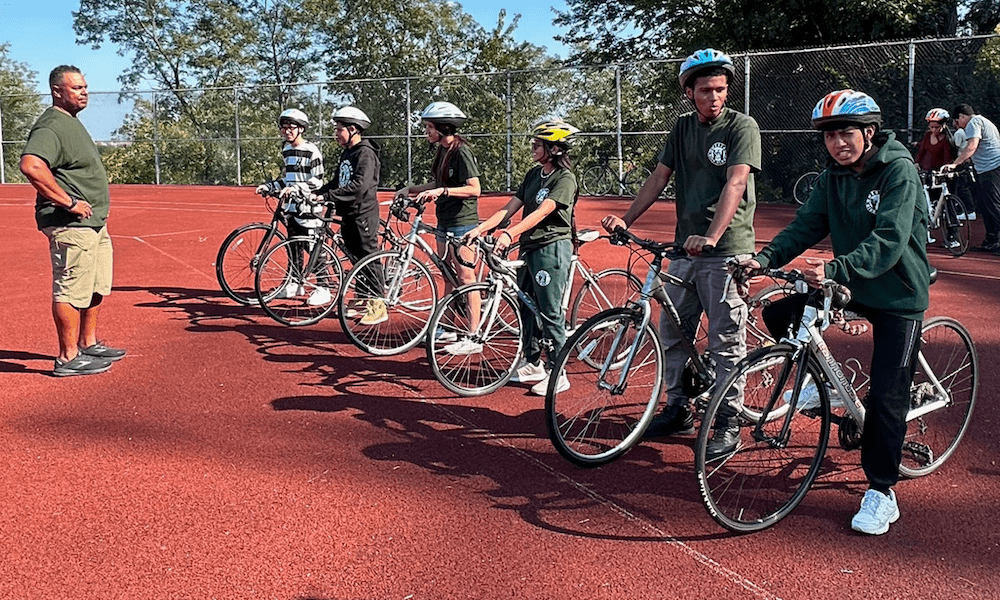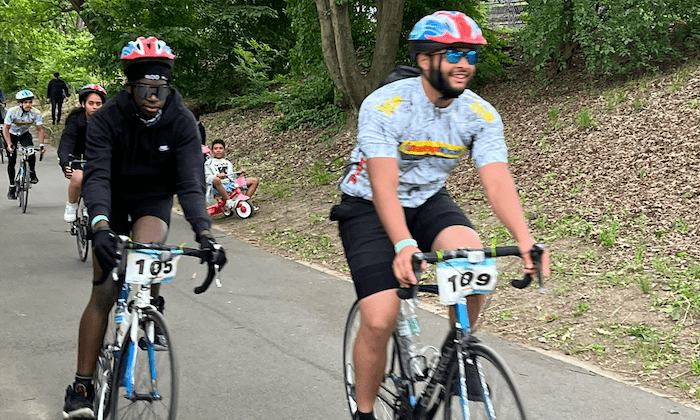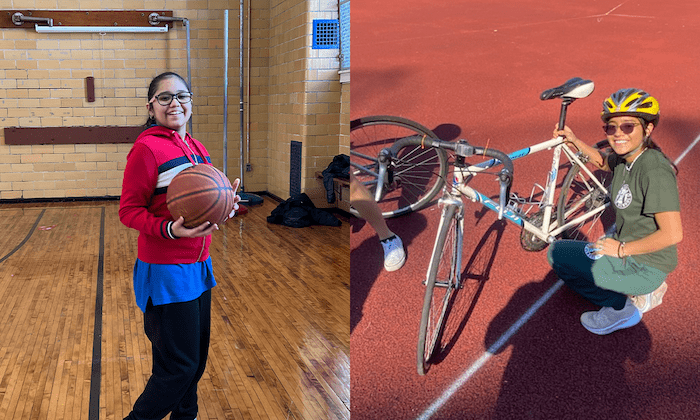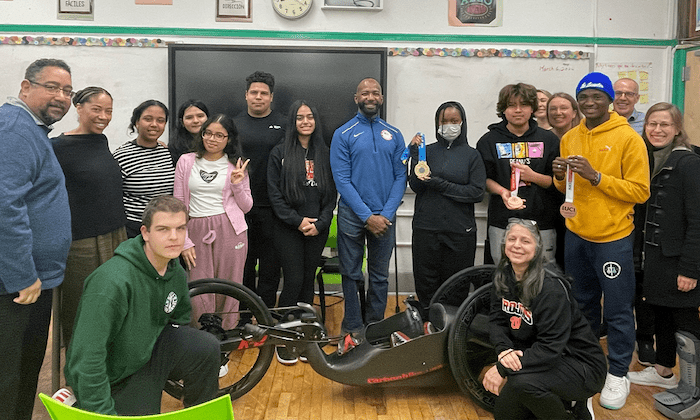
I Challenge Myself: Nourishing NYC Students Bodies & Minds
Head In The Game Grantee Spotlight
July 19, 2024
In honor of National Minority Mental Health Awareness Month (NMMHAM) in the US, we’re highlighting I Challenge Myself (ICM) - a Grantee of our Head In The Game (HITG) program powered by the Z Zurich Foundation. The New York-based non-profit provides opportunities for public school students – 99% coming from Black, Brown or other backgrounds considered to be minorities – to strengthen their bodies, minds and spirits through school-based cycling and fitness programs.
With a 2024 theme of: Be the Source for Better Health: Improving Health Outcomes Through Our Cultures, Communities and Connections, NMMHAM raises awareness about the unique challenges that affect the mental health of racial and ethnic minority and American Indian/Alaska Native (AI/AN) populations. It also seeks to destigmatize mental illness and encourage public awareness.
According to the Anxiety and Depression Association of America (ADAA), many Black, Indigenous, Hispanic, Asian and other people of color deal with stress and trauma that stem from historical trauma, racism, language and cultural differences, a lack of access to treatment, socioeconomic struggles and persistent systemic social inequities and discrimination. Specifically, ADAA cites that youth of color experience harm to their mental health and wellbeing from racialized police violence and immigration enforcement. Additionally, Black and Latinx children were 14% less likely than white children to receive treatment for depression. And, LGBTQ+ youth from AI/AN backgrounds were 2.5 times more likely to report a suicide attempt in 2020.

Since its inception in February 2005, ICM has served over 3,500 public middle school and high school students aged 11-19 across the Bronx and Manhattan. The majority of its participants identify as BIPOC and its curriculum has lessons on inclusivity coverinh diversity, gender and sexual orientation. The non-profit partners with New York City public schools to offer programs that introduce youth to non-competitive endurance sports – currently cycling and fitness – to help students develop socially, academically, physically and mentally. Students feel they can take more risks outside of the program and they have less anxiety and feel better about themselves.
Executive Director, Quentin Ball, hears from students that they lack adults around them who support their mental health or self-care. She explains that the top three challenges facing NYC public school students are not having enough adults around them for support and encouragement, a lack of access to high quality mental health services and the barrier costs to seeking treatment. There is also the pressure that high school brings academically and socially. “They feel they can only rely on themselves, which is why we are proud to provide support in our programming... We see ourselves as equally prioritizing mental and physical health, which is a rarity for programs that engage BIPOC youth,” said Ball.
ICM currently provides three sports-based youth development programs: Cycling Smarts which includes a 100 mile, one day bike tour (this year in partnership with the Pride Ride); 4toFIT, an in-PE fitness program with a special focus on engaging girls; and Civic Engagement, where students identify community needs and plan projects such as composting and voter registration that improve their communities. Each program includes an end-of-semester fitness challenge that promotes control and teamwork, tests the students’ physical and mental endurance and celebrates their accomplishments and personal growth. Its approach focuses on perseverance and resilience and redefining success and failure.

“About half our students are learning to ride a bike for the first time so they already feel a high level of self-pride and self-confidence in the first few weeks. Then the students grow their endurance through perseverance and teamwork on both indoor and outdoor bikes so they are meeting goals at every step along the way. This has such an impact both physically and mentally throughout the year. It's not just about the end-of-year goals but the mini-goals along the way,” explained Ball.
The non-profit also offers Youth Cycling Apprenticeships, which prepare youth for careers in health and fitness and active design projects that engage youth and residents in identifying areas in their neighborhoods that can benefit from street improvement projects. These programs help adolescents develop essential skills such as teamwork, discipline and goal setting – skills that can positively impact their lives beyond cycling and fitness.
ICM is using funds from the HITG program to strengthen its ability to support youth mental wellbeing. “We already knew that our programs impacted both mental and physical health, but we neither had the words, focus, or training to explain or formalize it. The HITG grant has honestly transformed the mission of our organization, so much so that every single decision we make is now through the lens of ‘how does this support BOTH the mental and physical health of our students?’ It has been transformative,” she continued.

Ball goes on to say how valuable it is for ICM to be a part of the HITG community: “One of the things we love is learning from other non-profits. During all our HITG training sessions, in our Learning Community interactions and in our live meet-ups we absorb the best practices from others. There are several other non-profit leaders I have met through HITG that I communicate with weekly, sometimes even to just bounce a quick idea off.”
Currently, the organization is taking the training from HITG and applying it to its newest partnership with the South Bronx Literacy Academy – the first elementary school for students with reading struggles. “The students at the school have had a tough journey to get there and sports are such an outlet for them. We are designing programs that take into consideration and provide the joy that can come with physical activity,” said Ball.
Together, I Challenge Myself and Head In The Game are raising awareness of mental wellbeing and ensuring that no one faces the challenges of mental health alone. Visit the Head In The Game Campaign Resource Hub to access diverse mental wellbeing resources for teens, and check out our Coaches' training series supporting youth mental wellbeing.